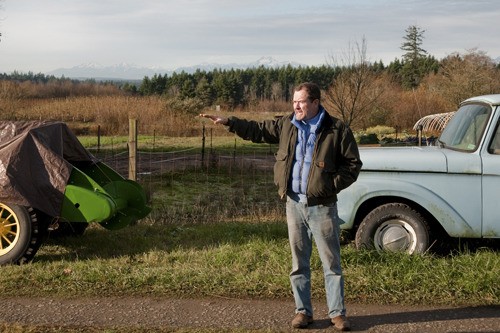It’s taken more than two years for the city and the Friends of the Farms to reach agreement on a management contract for the city’s 60 acres of farm land.
The process has been lengthy and contentious at times, but early next month the nonprofit will finally start working on leases for the 12 or so individuals who make a living on that land.
It will begin with the appointment of members to a task force, which primarily will monitor the first year of the individual leases.
With the exception of Akio Suyematsu, the 90-year-old whose family originally owned much of what became Day Road Farms when purchased by the city, all of the farmers working public land will be required to pay – for the first time – to farm the city property.
The genesis of the 30-year lease stemmed from the city’s desire to have an entity manage the public land rather than dealing with farmers individually.
Friends was a natural since it already had a five-year agreement with the city to manage the Johnson and Morales farms, and a working relationship with the farmers working other city farmland. All of them supported establishing a leasing process for the land.
“One, it is important for them to have a fair value placed on the land,” said Bart Berg, who chairs the Friends board. “And, more important, it gives them security to know that they can invest in the property they control.
“We will be able to protect the farmers who are there, and they in turn, with long-term stability, can care for the land. They all really care about the soil they work.”
Another benefit, Berg said, is that the length of the lease will place protective conservation easements on the land, which will allow the current farmers to plan for the future of the property.
“The main people (Suyematsu, Karen Selvar, Gerard and Jo Ann Bentryn, Brian McWhorter and Betsey Wittick) will need to be replaced sometime during the life of the new lease, and they worry about who that will be,” Berg said.
“This will give them time to nurture others,” he said. “Plus protection of the land will be critical for the new farmers since they may have few resources and will need that stability to continue growing food locally.”
Some of the Day Road Farm properties are privately owned by the farmers, and the acreage worked by Suyematsu is a “life estate,” which means it will revert back to the previous owner (the city) when he dies. It was purchased by council funds, which makes it less protected than land purchased as open space with conservation easements, Berg said.
The individual annual leases will range between $80 and $350 per acre, based on USDA and local Kitsap County agricultural lease rates. Each farmer’s rent rate will be calculated by an agreed percentage rate of gross income from crop yield.
Friends had initially sought a 99-year lease, but that proposal was opposed by some community and council members, and the council eventually agreed (with a 6-0 vote) on 30 years. Some islanders resented that the “public” farmers had an advantage over “private” farmers because they had been working the land without a lease for many years.
“I can understand that not all of the elements of our lease appeal to everyone,” said Berg, “I’m glad the process was vetted. We responded in writing to a lot of the concerns and had conversations about it. That was healthy and led to a better lease. There was some misinformation, and we hope some of those in dissent will be members of our task force.”
The lease includes a task force that will monitor the first year of the lease, essentially “making sure there is fair play with the individual leases,” Berg said.
He said the 99-year lease idea “was just a standard kind of length that a lot of nonprofits set up, but we’re happy to have it for 30 years. As long as it gives the farmers stability. That was the point.”
Berg said the public-private discussion needs to be continued so that there is more public involvement.
“That’s all about supporting farmland on this island whether it is public or private,” he said. “The Friends of the Farms have a strong commitment to
private farm lands … that’s part of our mission, too.”
The lease also stipulated that the sublease process will be open and competitive with criteria approved by city, giving preference based on several factors, including: commercial farming experience, growing food crops, agricultural diversity, sustainability and proximity of residence to farmland.
Friends receives most of its funding (about $100,000 this past year) from donations and grants, with a fifth of it provided by the city in recent years.
“We received about $20,000 this year and the same next year,” Berg said, “but that could disappear now.”
Friends will receive the rent and fees paid by sublease farmers or other users of city property for “operational and management costs” to fulfill the terms of the lease.”
Berg also hopes the new funding will allow Friends to hire a ful-time manager of the farmlands, which are currently overseen primarily by Berg when he can find the time to do it.
Friends will not pay any rent to the city during the life of the new lease, unless: “it is determined that Friends is receiving adequate income to cover the costs associated with managing the city’s agricultural lands through income such as sub-lease rent payments, user fees and other sources associated with the city’s lands, then the parties agree to negotiate in good faith the terms of monetary rent due to the city from Friends, which rent may be used by the city for any municipal purpose.”



